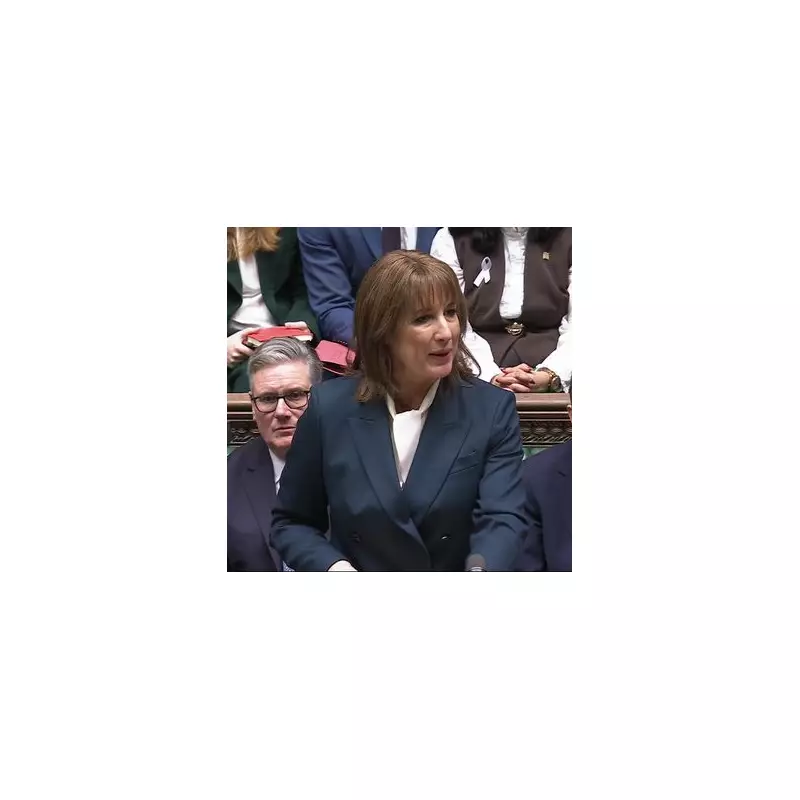
In a defining moment for the new Labour government, Chancellor Rachel Reeves has delivered an Autumn Budget that will lift 1.5 million children out of poverty, marking a profound shift in Britain's social policy.
The nation's first female Chancellor used her historic address to the House of Commons to announce the abolition of two deeply controversial policies: the two-child benefit limit and the so-called 'rape clause', which she described as "vile" and "dehumanising".
Scrapping the Two-Child Limit
At the heart of the Budget was the decision to end the two-child limit on benefits, a policy affecting a staggering one in nine children across the UK. This single measure will directly lift 350,000 children out of poverty immediately, while reducing the depth of poverty for a further 800,000.
Reeves, the daughter of primary school teachers, told MPs: "I joined the Labour party because I believe every child has equal worth." She spoke passionately about children going to school hungry and waking up in cold homes, declaring she would not "preside over a government that punishes children for the circumstances of their birth."
Contrary to common misconceptions, the Mirror's long-running campaign highlighted that 59 per cent of children affected by the two-child limit have at least one parent in work, demonstrating how the policy impacted working families facing changed circumstances through no fault of their own.
Ending the 'Barbaric' Rape Clause
In what many campaigners consider her most powerful move, Reeves abolished the 'rape clause' - a policy requiring women to prove their child was conceived through non-consensual sex to receive support.
Wearing a white ribbon to mark the International Day for the Elimination of Violence against Women and Girls, the Chancellor stated: "I'm proud to be Britain's first female Chancellor of the Exchequer, and I will not tolerate the grotesque indignity of the rape clause any longer. It is dehumanising, it is cruel, and I will remove it from the statute book."
The policy had forced survivors like Maria, featured in the Mirror just a fortnight ago, to repeatedly recount their trauma to different Department for Work and Pensions staff, despite being diagnosed with PTSD. Maria described being "retraumatised again and again" by the process of explaining her sexual assault to strangers.
Broader Budget Measures and Political Reaction
While Reeves maintained her reputation as a cautious Chancellor, the Budget contained several significant Labour initiatives that distinguished it from previous Tory budgets:
- Clawing back money from Covid contracts
- Abolishing failed police and crime commissioners
- Taking on gambling companies while abolishing 'bingo duty'
- Transferring the investment reserve from the British Coal fund to its members
- Making payments from the blood infection compensation fund exempt from inheritance tax
The Chancellor also announced funding for libraries in every secondary school and upgrades for playgrounds across the nation, emphasising her commitment to all children's welfare.
Prime Minister Keir Starmer introduced the Budget by sharing his personal understanding of financial struggle, saying "I know what it's like to sit around a kitchen table with bills that can't be paid." Reeves similarly referenced her childhood in a school where textbooks were shared and lessons held in portacabins.
In contrast, Tory leader Kemi Badenoch responded by claiming Reeves would go down as the "worst Chancellor in history," a remark that appeared tone-deaf given the Budget's focus on child poverty reduction.
With the removal of the two-child cap and the abolition of one of the most misogynist policies in modern British history, Rachel Reeves has established a lasting legacy for 1.5 million children, ensuring her first Budget will be remembered as a landmark moment in the fight against child poverty.






